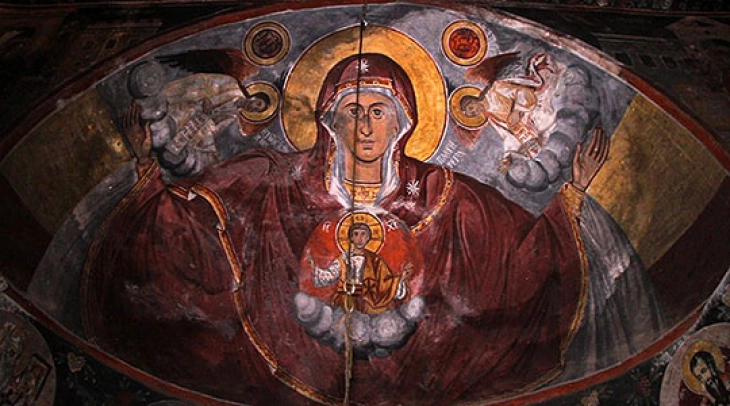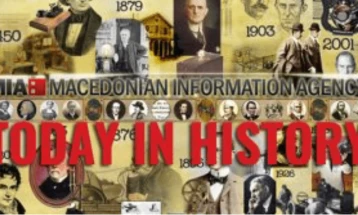Religious calendars
- 1 December 2024 (MIA)

1 December 2024 (MIA)
Macedonian Orthodox Church Calendar
The Holy Martyr Plato
From the town of Ancyra in Galatia, he was born and brought up a Christian. Even in his youth, he showed great perfection in every virtue. Plato did not conceal his faith in Christ the Lord, but preached it openly, denouncing idolaters for their bowing down to dead creatures in place of the living Creator. For this, he was brought before the governor, Agrippinus, for trial, and was harshly tortured by him. When the governor began to urge him to escape death and save his life by worshipping idols, Plato replied: ‘There are two deaths: the temporal and the eternal; and there are two lives: the one transitory and the other without end.’ Then Agrippinus put him to harsher torture. Among other tortures, he commanded that red-hot cannon balls be placed on his naked body, and that his flesh be cut into strips. ‘Torture me more harshly’, cried the martyr to the torturers, ‘that your inhumanity and my endurance may be the more clearly seen.’ When the torturer spoke to the martyr about the philosopher Plato, saying that. he was a pagan philosopher, he replied: ‘I am not like Plato, nor he like me, except in our names. I learn and teach the wisdom that is of Christ, while he teaches the wisdom that is folly before God.’ After that, Plato was thrown into prison, where he spent eighteen days without bread or water. When the warders marvelled that Plato could live without food for so long, he said to them: ‘You are satiated by food, but I by holy prayer; you rejoice in wine, but I in Christ the true Vine.’ He was finally beheaded with the sword in about 266, and received a wreath of eternal glory.
Catholic calendar
Edmund Campion
Son of a Catholic bookseller named Edmund whose family converted to Anglicanism. The boy planned to enter his father’s trade, but earned a scholarship to Saint John’s College, Oxford under the patronage of Queen Elizabeth I’s court favorite, Robert Dudley, Earl of Leicester. Sought after speaker. Queen Elizabeth offered him a deaconate in the Church of England. He declined the offer, fled to the continent, and joined the Jesuits. Ordained in 1578. He spent some time working in Bohemia, then returned to London as part of a Jesuit mission, crossing the Channel disguised as a jewel merchant, and worked with Jesuit brother Saint Nicholas Owen. There he wrote a description of his new mission in which he explained his work was religious, not political; it became known as Campion’s Brag. Widely distributed, it encouraged many Catholics to remain loyal to their faith. It also led to Edmund’s arrest, imprisonment and torture in the Tower of London, and martyrdom. He was born on January 24, 1540 at London, England and died hanged, drawn and quartered on December 1, 1581 at Tyburn, England; parts of his body displayed at each of the four city gates as a warning to other Catholics; relics at Rome, Prague, London, Oxford, Stonyhurst, and Roehampton.







